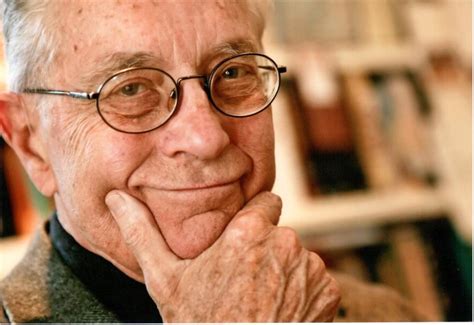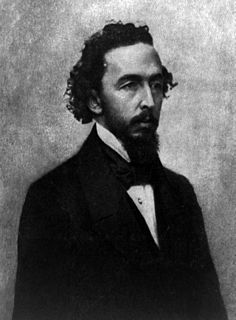A Quote by Hermann von Helmholtz
During the first half of the present century we had an Alexander von Humboldt, who was able to scan the scientific knowledge of his time in its details, and to bring it within one vast generalization. At the present juncture, it is obviously very doubtful whether this task could be accomplished in a similar way, even by a mind with gifts so peculiarly suited for the purpose as Humboldt's was, and if all his time and work were devoted to the purpose.
Related Quotes
We must never put our dreams of success as God's purpose for us; His purpose may be exactly the opposite. His purpose is that I depend on HIM and in HIS power NOW. His end is the process. It is the process, not the end, which is glorifying to God....His purpose is for this minute, not for something in the future. We have nothing to do with the 'afterwards' of obedience. If we have a further end in view, we do not pay sufficient attention to the immediate present; if we realize that obedience is the end, then each moment as it comes is precious.
A man with a half volition goes backwards and forwards, and makes no way on the smoothest road; a man with a whole volition advances on the roughest, and will reach his purpose, if there be even a little worthiness in it. The man without a purpose is like a ship without a rudder - a waif, a nothing, a no man. Have a purpose in life and having it, throw such strength of mind and muscle into your work as God has given you.
Our purpose is to be able to measure the intellectual capacity of a child who is brought to us in order to know whether he is normal or retarded. ... We do not attempt to establish or prepare a prognosis and we leave unanswered the question of whether this retardation is curable, or even improveable. We shall limit ourselves to ascertaining the truth in regard to his present mental state.
[Herschel and Humboldt] stirred up in me a burning zeal to add even the most humble contribution to the noble structure of Natural Science. No one or a dozen other books influenced me nearly so much as these two. I copied out from Humboldt long passages about Teneriffe and read them aloud on one of [my walking excursions].
A God who draws near out of love, the Holy Father continued, walks with His people, and this walk comes to an unimaginable point. We could never have imagined that the same Lord would become one of us and walk with us, be present with us, present in His Church, present in the Eucharist, present in His Word, present in the poor, He is present, walking with us. And this is closeness: the shepherd close to his flock, close to his sheep, whom he knows, one by one.
It’s not about you. The purpose of your life is far greater than your own personal fulfillment, your peace of mind, or even your happiness. It’s far greater than your family, your career, or even your wildest dreams and ambitions. If you want to know why you were placed on this planet, you must begin with God. You were born by his purpose and for his purpose.
He screamed for all he had lost...screamed for the half male he was...screamed for Jane...screamed for who his parents were and what he wished for his sister...screamed for what he had forced his best friend to do...He screamed, and screamed until there was no breath, no consciousness, no nothing. No past or present. Not even himself anymore. And in the midst of the chaos, in the strangest way, he became free.
Le Chiffre was serving a wonderful purpose, a really vital purpose, perhaps the best and highest purpose of all. By his evil existence, which foolishly I have helped to destroy, he was creating a norm of badness by which, and by which alone, an opposite norm of goodness could exist. We were privileged, in our short knowledge of him, to see and estimate his wickedness and we emerge from the acquaintanceship better and more virtuous men.
He [Julius Caesar] learned that Alexander , having completed nearly all his conquests by the time he was thirty-two years old, was at an utter loss to know what he should do during the rest of his life, whereat Augustus expressed his surprise that Alexander did not regard it as a greater task to set in order the empire which he had won than to win it.



































